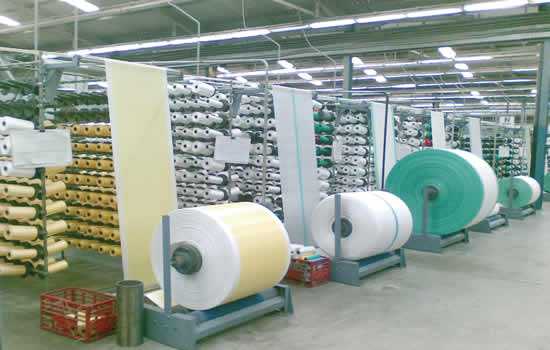
Unemployment in Nigeria is primarily a result of failed industries, government policies and failed educational system that produces unskilled and unemployable graduates and a failed political class whose vision of Nigeria have been mostly driven by tribalism, parochialism, institutionalized corruption and a replacement of merit with sycophancy and mediocrity in all levels of government.
Nigeria’s once- thriving textile industry collapsed years ago and abandoned factories are decaying from lack of use. Some former workers blame cheap clothes from China for the collapse but others blame mismanagement and a lack of government support.
During a recent tour of the textile industry in Kaduna, the first in a decade, decayed machines and bits of cloth littered what used to be one of the largest factories in Nigeria.
“Here in Kaduna there’s no any other jobs that these people are doing,” said an old factory worker chairman of the Coalition of Closed Unpaid Textile Workers in Kaduna. “The only job we are doing is okada job, those people who are riding motorcycles”. And some of them are late as a result of auto accident.
Most of the clothes for sale in Nigeria are imported from China, Industry leaders say their low cost helped drive the textile factories out of business. But they stress that corruption, mismanagement and lack of resources are equally to blame for the industry’s collapse.
“This is why the industry started collapsing one by one until today in Kaduna, where only one or two textile industries are working,” he said.
Former factory workers say about 9,000 of their rank workers are waiting for back pay in Kaduna alone. And they insist that if factories re-open, the locally-made clothes will outsell the lower-cost imports.
This same occurrence is happening to most other textile factories across Nigeria where by creating unemployment than employment
Take for instance agriculture, many citizens of Nigeria run away from agriculture because agricultural practice is stressful to them. Agricultural practices in the country are mostly manual, that is by the use of manpower.
Many who want to go into the practice grow cold minds when they discover that without machines there will be low agricultural output, agricultural mechanization makes farming easy and less stressful.
In Benue State (the food basket of the nation) during harvesting period fruits of different kinds are littered on the ground, those that can be sold will be sold at a cheaper rate and the rest will get damaged and decay, likewise places like Jos in Plateau State Osun State and others but we lack juice making factories in these places.
With introduction of machines and large processing factories into agriculture, Nigerians will see agriculture as something interesting and start engaging in. Advance in agriculture, like the new and improved system of farming and poultry will propel many to pick such as means of employment. When they make profit from the practice, they can enlarge and employ other persons to assist.
The government must look back to those days when agriculture was Nigeria’s major sauce of income and be able to resolve and put in place the right infrastructures’ that will bring the industry back to limelight if these industries are been put in good form.
Organized mining began in 1903 when the Mineral Survey of the Northern Protectorates was created by the British colonial government. A year later, the Mineral Survey of the Southern Protectorates was founded. By 1940s, Nigeria was a major producer of tin, columbite, and coal. But now where are they?
The mining of minerals in Nigeria accounts for only 0.3% of GDP, due to the influence of vast oil resources. The domestic mining industry is underdeveloped, leading to Nigeria having to import minerals that it could produce domestically, such as salt or iron ore all in the name of oil discovery.
Many factors contributed to bringing down the mining industry. The Nigeria civil war led to poor investment by local and foreign investors; political interference, poor governance and policies but not lack of personnel.
If these industries are put in place, job will be created and the workers will in return represent a new middle class and so reduce poverty and joblessness. For a policy like this to work, it has to be carefully thought out and implemented with little or no political interference with regime changes.
In conclusion, construction of more industries in Nigeria will go a long way to reduce unemployment. Government should give more allocation to industrial development and infrastructure whenever they are making yearly budget.
